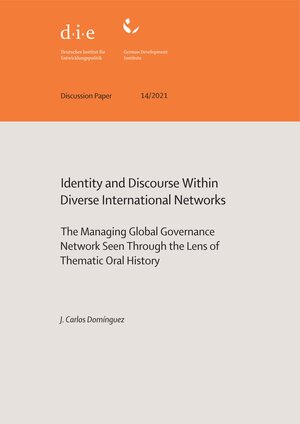
×
![Buchcover ISBN 9783960211518]()
Identity and discourse within diverse international networks
the Managing Global Governance network seen through the lenses of thematic oral history
von J. Carlos DomínguezThe MGG Programme is an innovative and ambitious initiative implemented by the German Development Institute (DIE) with the support of the German Federal Ministry for Economic Cooperation and Development (BMZ). Although the scope and objectives have changed since it was launched in 2007, there is a clear vision that summarises its overarching goals: to construct a network that functions as an effective, high-quality, knowledge-based cooperation system for promoting global governance and sustainable development in the long run. In this respect, managing and crafting symbols, perceptions and collective identities within the MGG will remain crucial as a glue that enables collective efforts and maximises the network’s overall impact.
Under what conditions does cooperation among diverse groups become sustainable? How does the MGG look when analysed as part of the longer-term life trajectory of its participants? How do individual identities intersect with a collective sense of belonging to the programme and to the network? What is the role of the collective identity and the collective narrative that underpins MGG efforts? The main goal of this discussion paper is to apply oral history methodologies to answer some of these questions. The assumption is that the long-term impact of the MGG Programme depends on how well individual motivations, which are shaped by complex life trajectories, intersect with national interests and broader global cooperation narratives.
By confronting theory with empirical evidence, this paper also draws some lessons and raises some interesting questions that may be useful for MGG staff to consider when planning future activities.


